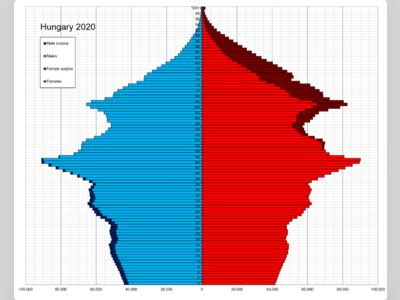
Impact of Trump Tariffs on Hungarian Audi Plant and Export Sector
The Audi manufacturing facility in Győr, crucial for Hungary’s economy, faces potential challenges due to US tariffs affecting vehicle exports.
The Audi plant in Győr, Hungary, plays a significant role in the country’s economy, contributing approximately 8 percent to Hungary's total exports.
The facility is primarily known for producing the Audi Q3 model, which is sold in various markets, including the United States.
According to company representatives, a portion of both vehicle and engine production from Győr is intended for the American market.
Peter Lőre, the Communications Director of Audi Hungaria, stated that the company is directly affected by the tariffs imposed by the former U.S. President Donald Trump, as some of their vehicles and engines are delivered to Volkswagen models exported to the U.S. Specifically, about 20 percent of the Q3 vehicles manufactured in Győr, which amounted to approximately 163,000 units last year, are sent to the United States, translating to roughly 33,000 vehicles.
The company is currently preparing to launch a new series of the Q3 model, with expectations for increased production numbers.
For 2025, projections indicate a potential rise in the output beyond the 163,000 unit mark.
In addition to the Q3, the Győr plant also produces the Cupra Terramar model, although this vehicle is not exported to the U.S.
In terms of engine production, the Győr facility is one of the world's largest engine plants, having produced around 1.5 million engines in the past year for various global markets.
This significant output underscores the plant's importance in both domestic and international automotive supply chains.
At a recent annual press conference, Audi Hungaria executives acknowledged the anticipated tariffs, although specifics regarding the impact were not disclosed at that time.
Michael Breme, the Chairman of the Audi Hungaria Board, emphasized the company’s commitment to free trade and expressed concerns over tariffs potentially restricting market access.
He indicated that decisions regarding responses to these tariffs would ultimately be made by Audi AG or higher levels within the Volkswagen Group.
The overall state of the German automotive industry presents challenges that also affect the operations of the Győr plant.
Reports indicate that the Hungarian facility's revenue has decreased by €500 million from 2023 to 2024, dropping from €9.1 billion to €8.6 billion.
Correspondingly, net profits have declined from €354 million to €340 million.
While production figures for engines decreased from 1,660,000 to 1,580,991 units, vehicle production increased slightly from 178,000 in 2023 to 179,710 in 2024.
The Audi plant in Győr employs nearly 12,000 individuals in the western Hungarian region and supports an estimated 30,000 to 40,000 family livelihoods through its supply chains.
This dependence highlights the broader economic implications of the Audi facility’s performance for both local employment and Hungary's economic health.
Producing approximately 1 percent of Hungary's GDP and contributing about 8 percent to national export values, any challenges faced by Audi will have a notable impact on the Hungarian economy.
The facility is primarily known for producing the Audi Q3 model, which is sold in various markets, including the United States.
According to company representatives, a portion of both vehicle and engine production from Győr is intended for the American market.
Peter Lőre, the Communications Director of Audi Hungaria, stated that the company is directly affected by the tariffs imposed by the former U.S. President Donald Trump, as some of their vehicles and engines are delivered to Volkswagen models exported to the U.S. Specifically, about 20 percent of the Q3 vehicles manufactured in Győr, which amounted to approximately 163,000 units last year, are sent to the United States, translating to roughly 33,000 vehicles.
The company is currently preparing to launch a new series of the Q3 model, with expectations for increased production numbers.
For 2025, projections indicate a potential rise in the output beyond the 163,000 unit mark.
In addition to the Q3, the Győr plant also produces the Cupra Terramar model, although this vehicle is not exported to the U.S.
In terms of engine production, the Győr facility is one of the world's largest engine plants, having produced around 1.5 million engines in the past year for various global markets.
This significant output underscores the plant's importance in both domestic and international automotive supply chains.
At a recent annual press conference, Audi Hungaria executives acknowledged the anticipated tariffs, although specifics regarding the impact were not disclosed at that time.
Michael Breme, the Chairman of the Audi Hungaria Board, emphasized the company’s commitment to free trade and expressed concerns over tariffs potentially restricting market access.
He indicated that decisions regarding responses to these tariffs would ultimately be made by Audi AG or higher levels within the Volkswagen Group.
The overall state of the German automotive industry presents challenges that also affect the operations of the Győr plant.
Reports indicate that the Hungarian facility's revenue has decreased by €500 million from 2023 to 2024, dropping from €9.1 billion to €8.6 billion.
Correspondingly, net profits have declined from €354 million to €340 million.
While production figures for engines decreased from 1,660,000 to 1,580,991 units, vehicle production increased slightly from 178,000 in 2023 to 179,710 in 2024.
The Audi plant in Győr employs nearly 12,000 individuals in the western Hungarian region and supports an estimated 30,000 to 40,000 family livelihoods through its supply chains.
This dependence highlights the broader economic implications of the Audi facility’s performance for both local employment and Hungary's economic health.
Producing approximately 1 percent of Hungary's GDP and contributing about 8 percent to national export values, any challenges faced by Audi will have a notable impact on the Hungarian economy.
AI Disclaimer: An advanced artificial intelligence (AI) system generated the content of this page on its own. This innovative technology conducts extensive research from a variety of reliable sources, performs rigorous fact-checking and verification, cleans up and balances biased or manipulated content, and presents a minimal factual summary that is just enough yet essential for you to function as an informed and educated citizen. Please keep in mind, however, that this system is an evolving technology, and as a result, the article may contain accidental inaccuracies or errors. We urge you to help us improve our site by reporting any inaccuracies you find using the "Contact Us" link at the bottom of this page. Your helpful feedback helps us improve our system and deliver more precise content. When you find an article of interest here, please look for the full and extensive coverage of this topic in traditional news sources, as they are written by professional journalists that we try to support, not replace. We appreciate your understanding and assistance.










